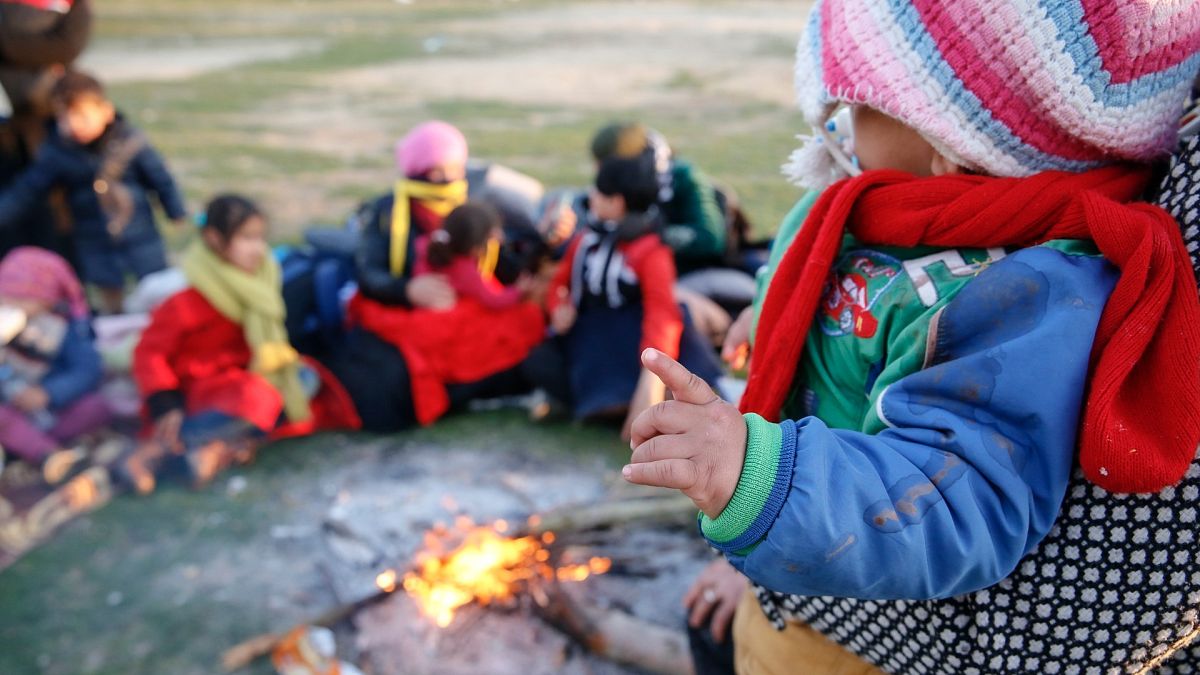Five years ago, the picture of three-year-old Alan Kurdi washed up dead on a Turkish beach shocked the world. Nevertheless, refugee and migrant children are "often worse off" now than in 2015, says Save the Children.
Five years on from the death of three-year-old boy Alan Kurdi, refugee and migrant children in Europe "are often worse off", Save the Children said on Wednesday.
Kurdi was photographed dead on a Turkish beach on September 2, 2015, and the harrowing image shocked the world and sparked a European debate on the refugee crisis. He drowned as his family made for Europe in a small dinghy that capsized off the Turkish coast.
"His drowning was expected to inspire new measures to protect migrant and refugee children. Instead, as this report shows, five years later refugee and migrant children are often worse off," Save the Children said in a report.
Children stranded at Europe's doors
The NGO estimates that more than 210,000 unaccompanied children arrived in Europe over the past five years and that at least 700 have died in their attempts to do so.
It stressed that they continue to be most at risk on Europe's external border, where Kurdi lost his life.
The European Union struck a deal with Turkey in 2016 aimed at curbing the inflow of people into the bloc and which planned for rapid return to Turkey for migrants not in need of international protection. In exchange, the EU pledge billions of euros in aid.
According to the children's welfare charity, the deal with Turkey, coupled with the EU's funding of Libyan coastguards and a crackdown on search and rescue operations, has led to children being stranded in transit countries including Morocco, Libya, Bosnia and Herzegovina and Turkey where "access to international protection is either limited or non-existent".
At least 10,000 more children are also stranded on Greek islands in what the charity described as "inhumane conditions". Sixty per cent of them are under the age of 12.
But even the children who manage to access asylum systems in Europe face hurdles, with few being granted refugee status.
"Finland, Sweden, Norway and Germany introduced new restrictions making it harder for children to access asylum or renew their permits. Many receive temporary or tolerated permits, but the length of time they are allowed to stay has been significantly reduced and recognition rates have dropped," Save the Children said in its report.
Detention and pushbacks
Additionally, several countries have introduced measures allowing for the detention of children.
"At the European level, proposed border procedures risk facilitating long-term detention of children and families. On the Greek islands and in police stations in Greece, children can be detained as a ‘temporary protective custody measure’," it argued.
"In Spain, new detention facilities allow for the de facto detention of children for 72 hours or more at disembarkation points. In Norway and Sweden, children are being detained in pre-removal proceedings. The AnkER-Zentren in Germany (centres for reception, decision and return) are severely limiting children’s freedom of movement," it added.
Another "worrying trend" flagged by the charity is the increasing use of pushbacks.
Testimonies it gathered in 2018 from 860 children who were travelling alone or had been separated from their families found that nearly half said that force had been used by police or border guards to push them back.
"Most of these violent pushbacks occurred at the border between Croatia and Serbia. In 2019, more than a third of children travelling the Western Balkans route were reportedly pushed back. Almost half of these cases involved violence inflicted by police or guards at the borders," it said.
For the NGO, "the sharp increase in anti-migrant sentiments and radical right-wing populism has had a profound effect on laws and policies, leading to measures of control and security that disproportionally affect children, whether they are travelling alone or with their families."
The report, released on the anniversary of Aylan Kurdi's death, comes as the EU Commission is preparing to unveil new proposals on migration and asylum reform.
The NGO called for member states to end child immigration detention and to fast-track asylum and family reunification procedures for children.
